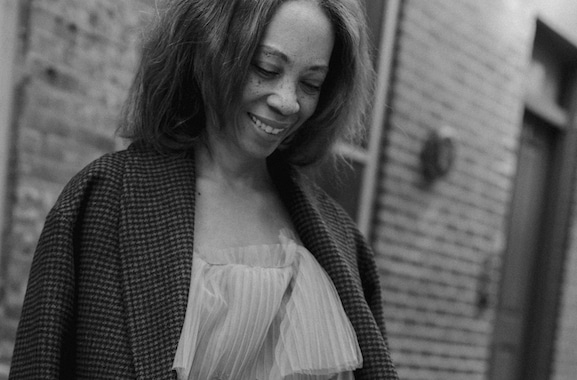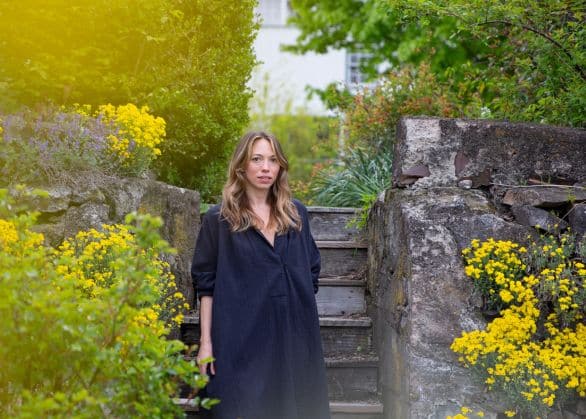Mothers before us had it in spades; modern-day society tricks us into thinking we don’t need it.
The other day, out-of-the-blue and very matter-of-factly, my two-and-a-half year old told me she wanted to go back in my belly. She stood in front of me, pointed to my stomach, and tried as best she could to crawl back in.
I laughed but it was a poignant moment: a glimpse at her budding understanding of life; a show of her blissful ignorance; and, as someone who struggled greatly through that pregnancy, a bit of a gut punch.
What if I could go back? I thought.
As a journalist, perinatal health coach, and motherhood community leader, it’s a question I grapple with frequently when new moms come to me weepy and wondering why no one told them — about the night sweats, the struggles, the help that you need and too often lack.
In my work, I try to answer the questions I myself wanted answers to in those weepy and unsure moments. I tell truths about the physical, emotional, and spiritual transition into motherhood. I interview researchers, doctors, and scientists who dedicate their work to advancing the wellbeing of mothers. I write about the power of doulas. I inform readers about the reality of perinatal mood and anxiety disorders such as postpartum depression. I explain how to make postpartum plans. I facilitate conversations about growth, loss, and becoming. I advocate for policy change. I do my best to provide the support I know mothers so desperately need. There’s great power in research, in connection, in lived experience.
But all the while, the weepy mothers keep coming: Why did no one tell me? they ask. And sometimes, they look as though they’ve been betrayed.
And they have. Society’s portrayal of new motherhood is often painted in pastels — baby showers and all joy. At best, it’s an incomplete picture. At worst, it’s a painting that leaves little room for the full breadth of the motherhood experience and for the exploration of the monumental transformation into a new stage of life. At worst, it’s a depiction that leaves moms feeling blindsided, alone, confused, and anxious.
Moms I work with often tell me that they feel like they can’t express any sentiment beyond excitement in pregnancy. There’s no place for their fear, anxiety, or confusion to go.
They tell me that the things they bought didn’t help.
They tell me that once they become mothers, they felt as though their story didn’t matter.
They tell me that they feel forgotten.
But recently, I spoke with a new mother in this country who described her postpartum months as sacred. She was so incredibly genuine in the way she said it.
That can’t be true, I thought, with flashbacks of my own confusing and emotional first pregnancy experience; sleep deprivation and tears and milk all in a puddle on a bed; a premature return to work; the many moms who come to me struggling.
I asked her to tell me more and when I did, she told me a story about friends and family members who sat with her while she learned to breastfeed, about moments she took for herself, about listening ears, about paid help.
It wasn’t a story of ‘easy.’ It was a story of support.
And when I hear stories like hers, they make me think of the mothers before us and how they mothered — without all of the things and the advice available at the tip of a finger.
Their secret isn’t catchy or seductive or even secretive, really, but it’s rooted in something American society has conditioned us to think we don’t need: support.
The mothers before us sought out support from the people and mothers around them. They didn’t need to look far to do it and they didn’t feel bad about doing it either. Support came from family members and friends. It came from neighbors and healers. It came from communities that raised children together.
And because of that support, mothers could better listen: to their bodies, to their growing babies, to their own unique experiences.
You won’t find an ad for support but if I could make one, I think it would say something like this: Support is what says, it’s okay to feel that way; I’m here for you.
Today, support is harder to find. That much is true. Sometimes it feels downright impossible to find. Today, society tends to sell support as something extra — something someone else needs, a luxury.
I think that’s dangerous messaging because, like I told my toddler, there’s no such thing as going back — in someone’s belly, to the ways of yesterday, or otherwise. All we can do is our best with what we know now and pass that along to others.
So we have to look for support. We have to empower others to do the same. We have to educate people about its vast benefits, advocate for support structures that hold moms, and normalize support’s existence in motherhood. We have to scream about it.
Because it’s easy to think that support doesn’t quell up-all-night exhaustion, speed healing, dry tears, or take away the hard parts of pregnancy. But I think it does.
Cassie Shortsleeve is a freelance health and parenting writer, an integrative health coach, a mother, and founder of the new motherhood platform Dear Sunday. Follow along on instagram.



